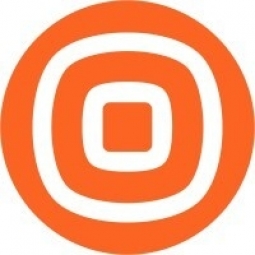Technology Category
- Networks & Connectivity - 5G
- Platform as a Service (PaaS) - Application Development Platforms
Applicable Industries
- Consumer Goods
- Retail
Applicable Functions
- Quality Assurance
- Sales & Marketing
Use Cases
- Retail Store Automation
- Theft Detection
Services
- Testing & Certification
About The Customer
Retailo, founded in July 2020 and headquartered in Riyadh, operates in Pakistan and KSA. It is the fastest-growing B2B startup in MENA and Pakistan, with over 700 employees spread across eight cities. Retailo has digitized retail supply chains in the region, serving over 35,000 active retailers who can access more than 2,000 SKUs from the Retailo app. The company's mission is to simplify the retail business and make supply chains easily accessible and beautifully uncomplicated. Retailo manages its vast operation through multiple warehouses that store inventory from hundreds of brands, many of which are direct Retailo partners.
The Challenge
Retailo, a rapidly growing B2B startup, faced significant challenges in managing customer communication as the business expanded. The company lacked clear and consistent communication channels, which were crucial for maintaining quality interactions with their retailers. The existing call center was overwhelmed with the influx of requests, leading to increased waiting periods for customers and causing frustration. This situation also cost Retailo valuable opportunities to build its business during the establishment phase. The company needed a scalable, value-driven communication solution that could effectively distribute necessary information, such as daily updated price lists and SKU availability, to multiple companies.
The Solution
Retailo adopted Infobip's Conversations as its primary customer service platform. WhatsApp, which was natively integrated into Conversations, was chosen as the communication channel due to its widespread use, significant market penetration, and ease of use. Retailo also decided to use Urdu Roman, Urdu written in English letters, to maintain clear communication as it was the preferred language of their local network. Retailo's sales teams used Conversations to communicate business-critical information, especially daily changing price lists, with companies. Infobip's SMS and Voice solutions were also implemented to improve delivery rates and maintain high-quality customer support.
Operational Impact
Quantitative Benefit

Case Study missing?
Start adding your own!
Register with your work email and create a new case study profile for your business.
Related Case Studies.
.png)
Case Study
Improving Vending Machine Profitability with the Internet of Things (IoT)
The vending industry is undergoing a sea change, taking advantage of new technologies to go beyond just delivering snacks to creating a new retail location. Intelligent vending machines can be found in many public locations as well as company facilities, selling different types of goods and services, including even computer accessories, gold bars, tickets, and office supplies. With increasing sophistication, they may also provide time- and location-based data pertaining to sales, inventory, and customer preferences. But at the end of the day, vending machine operators know greater profitability is driven by higher sales and lower operating costs.

Case Study
Improving Production Line Efficiency with Ethernet Micro RTU Controller
Moxa was asked to provide a connectivity solution for one of the world's leading cosmetics companies. This multinational corporation, with retail presence in 130 countries, 23 global braches, and over 66,000 employees, sought to improve the efficiency of their production process by migrating from manual monitoring to an automatic productivity monitoring system. The production line was being monitored by ABB Real-TPI, a factory information system that offers data collection and analysis to improve plant efficiency. Due to software limitations, the customer needed an OPC server and a corresponding I/O solution to collect data from additional sensor devices for the Real-TPI system. The goal is to enable the factory information system to more thoroughly collect data from every corner of the production line. This will improve its ability to measure Overall Equipment Effectiveness (OEE) and translate into increased production efficiencies. System Requirements • Instant status updates while still consuming minimal bandwidth to relieve strain on limited factory networks • Interoperable with ABB Real-TPI • Small form factor appropriate for deployment where space is scarce • Remote software management and configuration to simplify operations

Case Study
Digital Retail Security Solutions
Sennco wanted to help its retail customers increase sales and profits by developing an innovative alarm system as opposed to conventional connected alarms that are permanently tethered to display products. These traditional security systems were cumbersome and intrusive to the customer shopping experience. Additionally, they provided no useful data or analytics.

Case Study
How Sirqul’s IoT Platform is Crafting Carrefour’s New In-Store Experiences
Carrefour Taiwan’s goal is to be completely digital by end of 2018. Out-dated manual methods for analysis and assumptions limited Carrefour’s ability to change the customer experience and were void of real-time decision-making capabilities. Rather than relying solely on sales data, assumptions, and disparate systems, Carrefour Taiwan’s CEO led an initiative to find a connected IoT solution that could give the team the ability to make real-time changes and more informed decisions. Prior to implementing, Carrefour struggled to address their conversion rates and did not have the proper insights into the customer decision-making process nor how to make an immediate impact without losing customer confidence.









